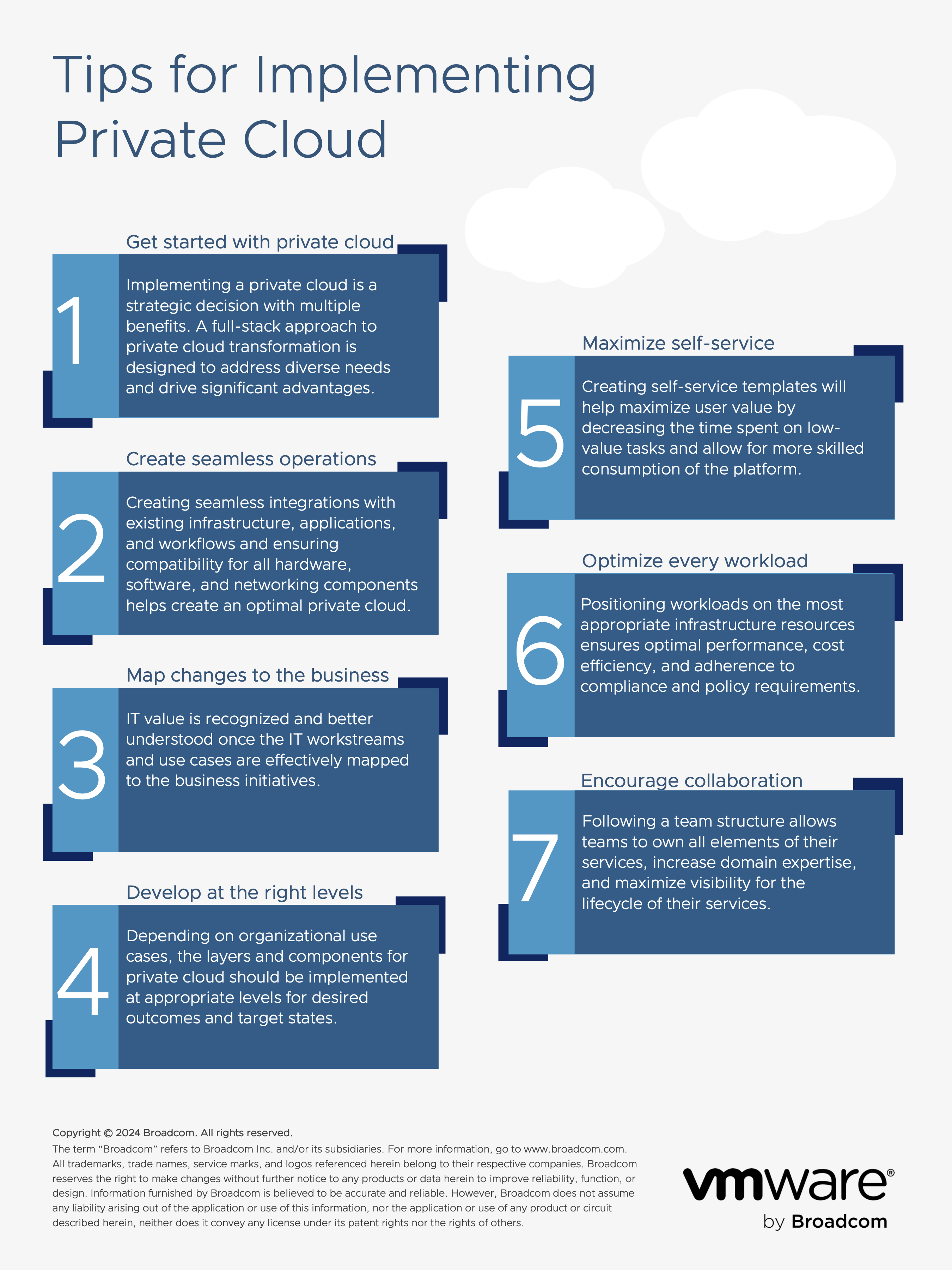Implementing a private cloud addresses many use cases for specific workloads and situations. Whether your organization needs increased security, customized infrastructure, or integration with legacy systems, a private cloud can provide:
- Increased performance and reliability – Predictable performance from dedicated resources, redundant systems, and failover mechanisms provide greater reliability and uptime and allow for optimized workload management.
- Flexibility and customization – Tailored infrastructure to customize needs for specific workloads, integration with legacy systems, and implementation of specialized security measures as well as scalability and adaptability of solutions and resources.
- Enhanced security and control – Data protection with a dedicated environment for greater control over access and security measures and segregation from public environments to reduce the risk of unauthorized access and breaches.
If your organization wants to gain a competitive advantage by implementing a private cloud, a comprehensive approach with a solid strategy and clear roadmap ensures that your efforts align with business goals and avoid possible pitfalls such as prolonged timelines and escalated costs. Learn more about taking a full-stack approach to implementing private cloud from our latest white paper, “Beyond the Basics: Actionable Guidelines to Implement Private Cloud,” and check out the infographic excerpt from the paper below.






